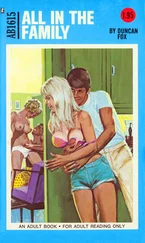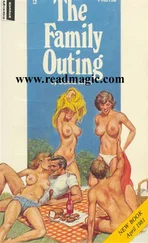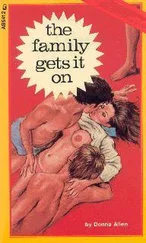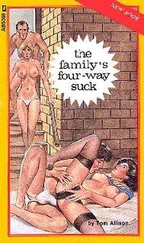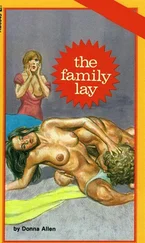“No. Alex wouldn’t have a tag made for Figgy and put it on his collar without showing me and Ellen. No way.” I turn in a slow circle, fixing my eyes on one cluster of trees after another. Figgy’s been in and out of every one since I brought him home. Many are dense enough to conceal a person.
“Well, some fool’s put the wrong address on this tag,” says Olwen. She moves out of the way so that I can take her place. I cover my mouth with my hand as I read the engraved words. On one side it says, “Little Dog.” On the other: “Want to keep me safe? Then take me home: 19 Lassington Road, Muswell Hill, London, N10.”
“It’s our old address,” I say.
“I suppose it’s an easy mistake to make if you’re on autopilot,” Olwen says doubtfully.
“It’s not a mistake.” I pick Figgy up and wrap my arms around him. He’s shaking, poor thing. Then I realize he only is because I am. “It’s a threat,” I tell Olwen. “From Lisette Ingrey, aka Anne Donbavand.”
It’s five A.M., I’ve failed to fall asleep, and what I must do now is obvious: email “prefect parent” Stephen Donbavand again, except more deviously this time.
When I wrote to him before, I was honest about who I was and what I wanted. Was he tempted? Did Anne forbid it? Is he in agreement with her, or is his compliance based purely on fear?
I need to find out more about him. Hopefully he’ll agree to meet me—or rather, the person I’m going to pretend to be in my email.
“Dear Stephen Donbavand,” I type, with the end of Figgy’s leash clamped between my knees. Once she understood about the writing on the medallion and what it meant, Olwen pleaded with me to let her take Figgy back with her—only temporarily—for his own safety.
I should have agreed. It made sense, but I couldn’t do it. The idea was unbearable. I promised Olwen that Alex and I would keep Figgy with us and on the leash whenever we were outside. I’ve taken it even further: here I am in the library with him on the leash in case . . .
Don’t even think it.
When I went up to say goodnight to Ellen earlier, I pulled open the small mint-green door beside her bed, praying I wouldn’t see feet walking quickly away. “What are you looking for?” she asked me.
“I thought I heard Dad there,” I lied.
I was looking for Lisette Ingrey.
The silver tag with “Little Dog” on one side and Anne Donbavand’s threat on the other is in my pocket, ready to be dropped onto the desk of DC Euan Luce tomorrow.
Concentrate, Justine.
I delete “Dear Stephen Donbavand” and type “Dear Dr. Donbavand” instead.
“I know you must be extremely busy, but I wonder if you might spare ten minutes or so, at your earliest convenience, to discuss with me the possibility of becoming my PhD supervisor. I’m thinking of applying to do my doctorate at Exeter, and my chief research interest is similar to research you have done that I’ve found interesting. I’m leaning toward working on microeconomic analysis of competition in online markets, but would love to discuss this further. Are you by any chance able to meet me in the next few days? As soon as possible would be great for me. I’m staying near Exeter at the moment, with relatives. I look forward to hearing from you. Very best wishes, Julia Vowles.” I use my stepmother’s first name and the surname of a detective from a TV drama I put a lot of effort into that never got commissioned.
I press “send.” Then, still not ready to go to sleep, I Google all the names I’ve already Googled more than once. Unsurprisingly, all the same results come up. I swear under my breath. I’m not being imaginative enough, that’s my problem. I should try something different.
I try “Ingrey anagrams,” “Perrine Ingrey anagram,” “Anne Donbavand formerly called.” Nothing. “Little dog” yields plenty, but none of it’s relevant.
On a whim, I type “ Tide Glider ” into the search box and press “return.” I click on the first result that comes up because it contains the word “Totnes,” though I’m not holding out much hope. When the page opens, I suck in a breath, not daring to let my thoughts flow until I’ve enlarged the picture.
Oh my God. The resemblance is unmistakable. I clutch the side of the desk as Figgy’s leash slips from between my knees. He stays where he is, and looks up at me in a point-proving way: “See? I can be trusted to stay here of my own volition.”
I’m looking at a 2011 article from the Totnes Times about a local artist, Sarah Parsons, whose painting Anne, Tide Glider won a local art prize. It’s a portrait of a woman of about my age. The text beneath the photograph says that Sarah cares more about this painting than any of her others because of its sentimental value; she is delighted and moved that it has won this prestigious prize. The woman depicted is her estranged sister Anne. There’s no explanation of the “ Tide Glider ” part.
Those features: the wide forehead, large blue-gray eyes with irises like hollow cylinders . . . The woman in the portrait has George Donbavand’s face.
Get out of my house, bitch. I slam the computer’s lid shut to banish her, and find myself staring at the library’s wood-paneled wall. She could be behind one of the panels. Hiding.
I have to get out, get some fresh air.
I pick up Figgy’s leash and give it a gentle tug toward the door. “Come on, Figgs. You must need the loo. Well, not the loo—the grass.” He seems to agree and runs ahead to the front door.
I unlock and open it as quietly as I can and step out into the cold air that smells of deepest night. “Isn’t this—” I start to say to Figgy, but straightaway I’m falling, leaving my words stranded up in the air as I hit hard blackness.
Chapter 10
You Know What? You Know What? You Know What? I Don’t Care
The following morning, the gates to the grounds of Speedwell House were opened and left standing open for the first time in absolutely ages. Guests were expected: the police, the Dodds, the Sennitt-Sasses, the Carelesses, Jack Kirbyshire’s wife and children, and David Butcher’s parents.
Bascom and Sorrel Ingrey had laid out a big breakfast spread: toast and jam, steamed prawn dumplings, fresh fruit, Parma ham and thin slices of Dutch cheese. To drink there was tea, coffee or freshly squeezed orange juice. Bascom was exhausted. He had been up all night squeezing oranges. (Sorrel had been asleep. One of her principles that she never broke was that she had to get nine hours’ sleep every single night.)
The feast laid out in the kitchen seemed unnecessarily elaborate to Lisette and Allisande. “Why is this happening?” they kept saying. “Today isn’t someone’s birthday party. It’s a horrible day. The food is too nice.”
“We’ll all need to eat,” Sorrel explained. “You can’t invite people to your house so early in the morning and not provide breakfast, and it might as well be a nice breakfast. Now go and sit in the drawing room, girls—you’re getting in the way.”
Lisette and Allisande went to the drawing room and Bascom brought them each a plate of breakfast while Sorrel clattered and swore in the kitchen. She hated the stress and the bother of entertaining.
Each of the guests grabbed a drink and a plate of food and congregated in the drawing room. (On the way to the drawing room, however, there was much to-ing and fro-ing in the wide Georgian hallway, much wandering into other rooms to have a peek at the famously locked-up house that was eagerly wondered about by all those who lived near it. For at least half an hour, people bumbled about and explored and roamed freely. I’m telling you this because it will become important later on.)
Читать дальше


